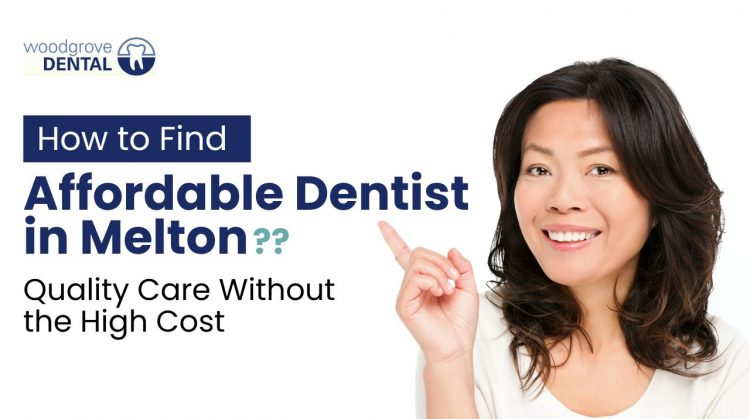1. Introduction
Gum disease, also known as periodontal disease, is a prevalent yet serious oral health issue affecting millions of people worldwide. This condition begins with inflammation of the gums, often due to the accumulation of plaque, a sticky film of bacteria that forms on teeth. If not addressed in its early stages, gum disease can progress to more severe forms, leading to significant oral health problems, including tooth loss and other systemic health issues. Understanding the causes, symptoms, and treatments of gum disease is essential for maintaining healthy gums and preventing its advancement.
At Woodgrove Dental, we are dedicated to providing expert care for gum disease and other dental health concerns. Our compassionate team of dental professionals offers a comprehensive range of services tailored to meet your individual needs. We believe in empowering our patients with knowledge about their oral health, enabling them to make informed decisions about their care. In this blog article, we’ll discuss everything you need to know about gum disease, including its causes, symptoms, treatment options, and how Woodgrove Dental can help you maintain a healthy smile.

Table of Contents
- Introduction
- Overview of Gum Disease
- Introduction to Woodgrove Dental
- Causes of Gum Disease
- Poor Oral Hygiene
- Smoking
- Hormonal Changes
- Chronic Illnesses
- Medications
- Nutritional Deficiencies
- Symptoms of Gum Disease
- Red, Swollen, or Tender Gums
- Bleeding Gums
- Persistent Bad Breath
- Receding Gums
- Loose Teeth
- Changes in Bite Alignment
- Treatments for Gum Disease
- Scaling and Root Planing
- Antibiotics
- Surgical Treatments
- Regular Maintenance
- Lifestyle Modifications
- How Woodgrove Dental Can Help
- Comprehensive Gum Assessments
- Education and Support for Patients
- Our Services and Why Choose Us
- Preventive Care
- Restorative Treatments
- Cosmetic Dentistry
- Periodontal Care
- Conclusion
- Importance of Early Intervention
- Call to Action
- FAQs
- Can gum disease be reversed?
- How often should I visit the dentist to prevent gum disease?
- What are the risks of untreated gum disease?
- Are there any at-home treatments for gum disease?
- How does smoking affect gum health?
- Contact Us
- Contact Information for Woodgrove Dental
2. Causes of Gum Disease
Gum disease arises mainly from the formation of a sticky substance called plaque on the teeth. Tartar is formed when bacteria in your mouth combine with food particles and saliva. If plaque is not eliminated through basic brushing and flossing, it deposits minerals and turns into tartar (calculus), which is removable only by a dentist. Here are some of the key causes of gum disease:
- Poor Oral Hygiene: Failure to brush the teeth at least twice a day and failure to floss is a common cause of plaque and tartar buildup. This in turn leads to a build-up of tartar, which in return raises the risk of developing gum diseases.
- Smoking: Smoking is also one of the main causes of periodontal disease in the world. Smoking slows the rate of blood flow to the area that needs to be treated and it also reduces the ability of the body to fight the infections in the gums.
- Hormonal Changes: The hormonal changes characteristic of such life phases as puberty, pregnancy, or menopause have an impact on gum condition. Women may develop gum problems that are sensitive to these times and may be prone to gum diseases.
- Chronic Illnesses: Diseases like diabetes, heart problems, and autoimmune diseases have a way of affecting the gums. For example, people with diabetes get easily affected by infections such as gum diseases because of poor blood sugar regulation.
- Medications: Some drugs decrease the production of saliva in the mouth and therefore cause dry mouth. It plays a role in removing food debris, and in reducing the acidic content of the mouth and as such, a reduction in saliva production will mean that the individual is prone to gum diseases.
- Nutritional Deficiencies: Some of the nutrients necessary for the human body include vitamin C and any deficiency in the diet can lead to a weak immune system that results in infection of the gums.
3. Symptoms of Gum Disease
The signs of gum disease can be more or less severe depending on the stage of the disease. In the initial stages (gingivitis) some signs may not be easily observable by the affected person. But as it advances to periodontitis, the signs may become more apparent with inflammation around the teeth. Common symptoms of gum disease include:
- Red, Swollen, or Tender Gums: Normal gums are red and smooth, but they do not swell, bleed or become red or inflamed. This means that any signs of redness and swelling are indications of early gum disease.
- Bleeding Gums: Some of the signs include bleeding when brushing or flossing your teeth which is a sign of gum disease. Gingiva should not bleed because that is an indication that they are healthy.
- Persistent Bad Breath: Halitosis is a condition that results from gum disease and the bacteria that cause this disease produce unpleasant smells.
- Receding Gums: In the later stages of gum disease, the gums begin to recede and shrink away from the teeth exposing more of the tooth roots.
- Loose Teeth: In more severe scenarios, the bone that holds the teeth also weakens, thus causing teeth to move or become loose.
- Changes in Bite Alignment: People may also develop some discomfort or pain when they bite, which may be attributed to the effect of gum diseases.
In case of the following symptoms, it is advisable that you visit the dentist as soon as possible. If diagnosed early enough the condition does not progress to the worse state.
4. Treatments for Gum Disease
To some extent, the treatment of gum disease depends on the extent of the disease. Gingivitis, or early-stage periodontal disease, may usually be reversed by careful personal cleaning and expert cleaning. For more advanced gum disease (periodontitis), treatment options may include:
- Scaling and Root Planing: This process refers to the cleaning process done below the gum line and which involves the elimination of the tartar and plaque. The dentist will also plan the tooth roots to allow reattachment of the gums to the teeth.
- Antibiotics: Topical or oral antibiotics may be prescribed to control bacterial infection, if present. Some of these foods can also help to decrease inflammation and aid the healing process of the gums.
- Surgical Treatments: In severe conditions, the doctor may decide to take the patient through surgery. Flap surgery involves the unzipping of the gum to reveal the underlying teeth roots which can then be cleaned, whereas bone grafting surgery would make use of the body’s natural ability to renew lost bone tissues.
- Regular Maintenance: Follow-up care includes dental cleanings and check-ups to note deterioration of gum condition and reoccurrence. Your dentist may want you to come more often for checkups to ensure your gums remain in good health.
- Lifestyle Modifications: Smoking cessation, proper brushing and flossing, and proper nutrition also help improve gum health in a big way.
5. How Woodgrove Dental Can Help
At Woodgrove Dental, we appreciate how important gums are in the overall health of your mouth. Professionals in our dental clinic give detailed gum check-ups and treatment depending on the patient’s situation. We spare time to explain to our patients about gum disease, the condition they have and the treatment process. The care for our patients is delivered by our professional and skilled team with the help of modern technology and following the best practices.
We also put a lot of focus on early intervention and work with our patients to set up proper home care regimens to avoid the development of gum disease. Our goal is to make your dental visits as comfortable as possible due to our family-orientated practice and caring approach.
6. Our Services and Why Choose Us
We offer a comprehensive range of dental services at Woodgrove Dental, ensuring your oral health is well taken care of, including:
- Preventive Care: Fluoride application and other dental prophylactic procedures to keep gums healthy and free from diseases that require special attention. Prophylaxis is the foundation of the dental healthcare system.
- Restorative Treatments: Services like; Filling and crowning of the damaged teeth, and root canal treatment of the affected teeth. Our restorative services are to save your natural teeth as much as possible.
- Cosmetic Dentistry: Cosmetic dentistry, including whitening of teeth, and applying veneers to give the teeth a better and neater appearance. In our opinion, the attractive appearance of the smile helps increase personal self-esteem levels.
- Periodontal Care: High-quality periodontal care to save the very support structure of your teeth. Our periodontal services involve treatment as well as patient education in order to enable the patient.
Selecting Woodgrove Dental means selecting a kind, people-oriented approach to the clients. We pride ourselves in offering you the right treatment for your dental condition, using advanced equipment and a friendly environment. Our team of professionals is always with you to help provide you with information and motivation towards achieving healthy gums.
7. Conclusion
Gum disease is also a condition that can easily be prevented or treated if diagnosed early. That is why it is possible to prevent the occurrence of gum diseases and keep your teeth healthy and beautiful for many years if you take care of yourself properly and visit the dentist regularly. If you experience any of the symptoms of gum disease or if you haven’t visited our clinic for a dental appointment for a long time, contact Woodgrove Dental now! You don’t want to take chances with your gums; let us assist you in achieving and sustaining healthy gums that are critical to the well-being of your mouth.

8. FAQs
- Can gum disease be reversed?
Yes, in the first stage, gum disease (gingivitis) can be reversible through proper brushing and flossing and/or dentist’s cleaning. This condition has to be treated as soon as possible to prevent further development.
- How often should I visit the dentist to prevent gum disease?
Experts recommend that you should see your dentist at least twice a year for a cleaning and examination. Those who are at higher risk may be required to make more frequent appointments.
- What are the risks of untreated gum disease?
If periodontal diseases are not treated they can cause tooth loss, and receding gum line and raise the risk of developing several severe diseases such as heart diseases, diabetes and respiratory diseases.
- Are there any at-home treatments for gum disease?
However, regular home oral hygiene care is very important but professional dental care should be sought for the management of gum diseases. Such treatment might not be enough if administered at home.
- How does smoking affect gum health?
Thus, smoking is a common cause of gum disease. This one decreases blood supply to the gums, retards the formation of new tissue and raises the risk of infections in the mouth.
9. Contact Us
Ready to experience compassionate dental care? Contact Woodgrove Dental today to schedule your appointment.
- Phone: (03) 8746 2237
- Email: info@woodgrovedental.com
- Address: 4b/211 Barries Rd, Melton VIC 3337
Let us help you and your family enjoy the benefits of caring, professional dental care! Our team is here to answer any questions you may have and guide you on your journey to optimal oral health.




Leave a comment